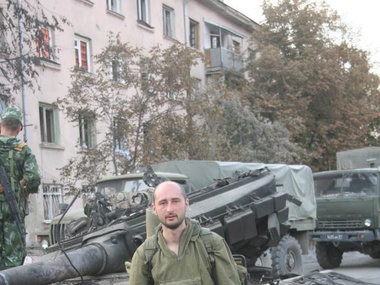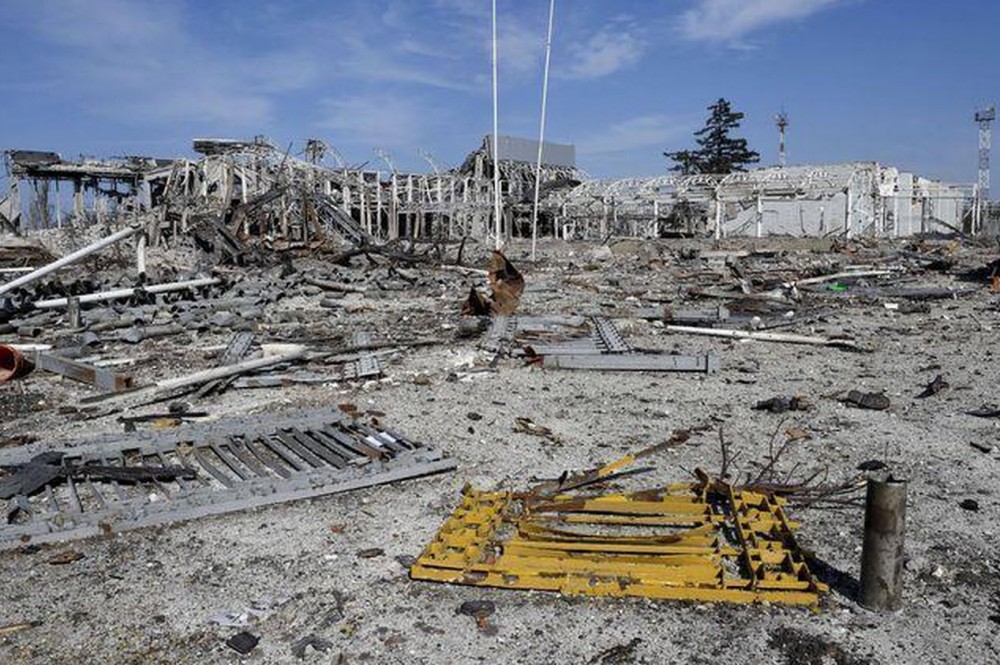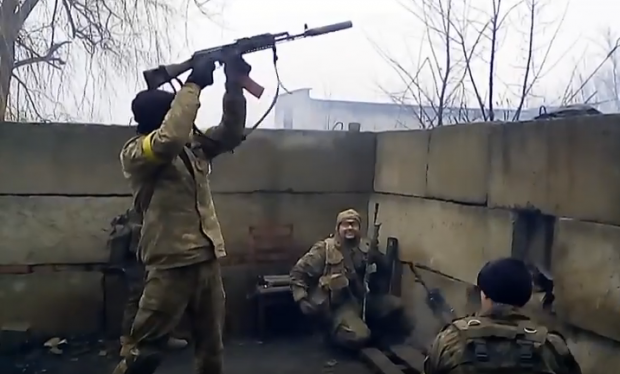Anita Hrabska
A group of 21 psychologists of the Ukrainian State Emergency Service returned from Sloviansk recently.
They were working on location for three days – giving help to the citizens, as well as humanitarian aid packages. Deutsche Welle spoke with the leader of this group, head of the department for psychological provision of State Emergency Service departments Anatoliy Korniev.
What was your first impression of Sloviansk?
I saw many totally destroyed, burnt and shot-through buildings. The citizens still cannot believe that everything will be alright that that nobody will try to intimidate them. In the regions of military action we could hear shots being fired from time to time. I don’t know who was shooting exactly.
How many citizens have you given aid to?
We created an emergency psychological aid point in the city council building. 127 people asked for help from the psychologists on duty there. Many pensioners, especially elderly women, came. Elderly women and children are the ones who suffered the most stress because of military action in the city.
We also went from house to house – came to peoples’ yard, offered help. Within three days we visited 466 houses and consulted over 570 people. The majority were pensioners. We met about fifty disabled people. We gave them foodstuffs – flour, grains, oil, sugar and other things, because know that the shops are closed, and the people are sometimes scared of leaving their yards and don’t know what is happening in the city. We also handed out booklets and brochures that say where they can ask for help should their house be destroyed etc.
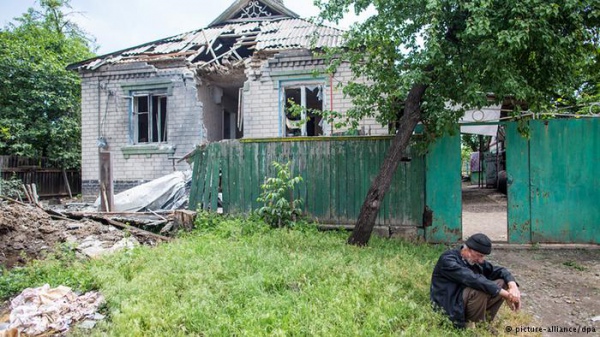
What is the Sloviansk citizens’ biggest concern at the moment?
Social issues. The elderly are most interested when the pension payments become regular again in the last three months. Some had their money transferred to other cities, as they left Sloviansk, and now the pensions have to be returned and this process is taking a long time.
Those who had their houses ruined are worried whether they will be compensated for their renovation and how – in money or construction materials. All of this is still undecided on state level. Electricity and water supplies have been restored not in all city districts, electrical wires have been broken, therefore trolleybuses don't circulate. The separatists are no longer there, therefore the people are worried as to when everything will start working again.
The questions also remain as to how they should go on living when, for example, their close relatives or neighbors support the separatists and they do not. I heard the people discussing this.
Did you meet the people that are still supporting the PRD terrorists? Whom do the Sloviansk citizens consider guilty of causing the armed conflict, or ruining their city?
They did not want to talk politics and say whom they supported for the most part. At the moment they are first and foremost concerned regarding how to go on living and who will help them.
Of course, the majority say that the separatists are to blame for ruining Sloviansk. They began this first, and as a result of their shootings many buildings have been ruined. The majority of the people are glad that the separatists fled, the Ukrainian army came and started restoring the city. A lot of people that evacuated and left their apartments returned later and saw that the separatists had robbed them.
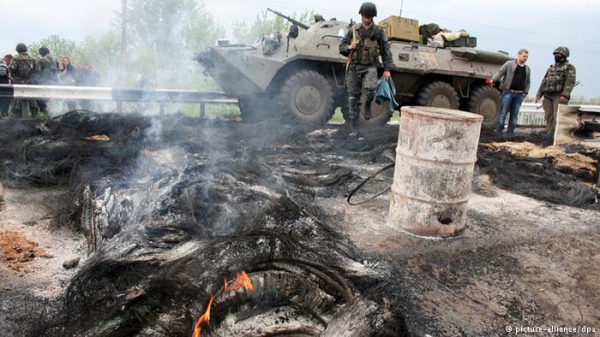
What is the general psychological situation in the city?
There is not a single person in Sloviansk that avoided fear and stress. The citizens told us how they ran and hid from fire in basements. Everyone was scared – those that supported the separatists and those who were against them. As it is impossible to know which house will be fired at next.
How did the people react to the help offered by your group?
The vast majority was interested. They are very scared of bulletproof vests now. We wore regular uniforms, T-shirts. The people were questioning us, asking who we were, where we came from, and then struck up conversation themselves. It was obvious that some of them have not spoken to anyone for a long time.
Do various on-location psychological consultations solve the issues of psychological rehabilitation of ATO zone dwellers? Are additional measures necessary?
We established cooperation with local volunteer psychologists, as well as educational headquarters of the city council, in order to involve all local educational institution psychologists in helping the citizens. I think that within three to four months our group should return to Sloviansk and see how the atmosphere in the city changes. However the decision should be made by the leadership of the State Emergency Situations Service.
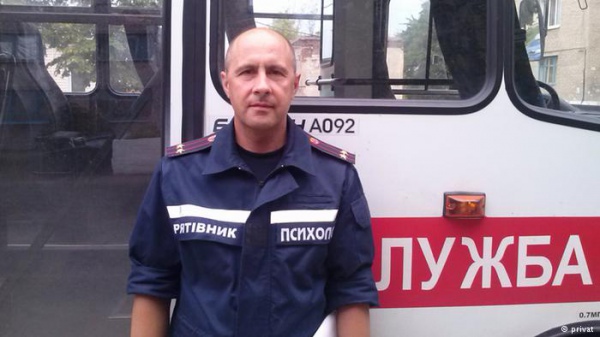
How should the children be helped, those that was military action, to prevent them from developing negative consequences for their psychological health?
Children, like adults, really don’t want for shootings to continue in their city. They want to return to normal life most of all: go for walks, play, go to school, meet with their friends, for everything to be as it was.
I would advise the parents to regularly take the children to psychologists, as they may have developed deep trauma from what they have seen. Our group has been to the first city children’s hospital in Sloviansk. The local doctors told me that the parents can bring their children and their psychologists will provide them with care.
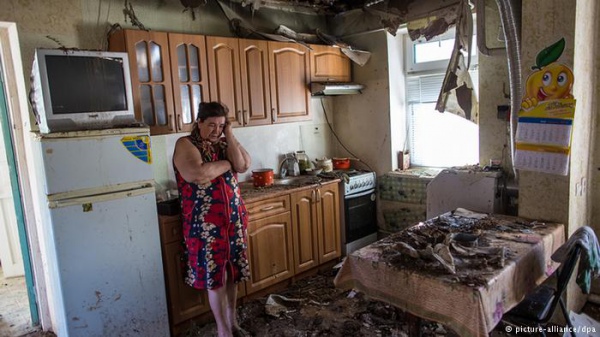
What do Sloviansk citizens expect in the future?
First and foremost, the restoration of their city, which they love and call the best. The people asked me frequently when the state will renovate Sloviansk. I think this is their main dream. The locals said that if needs be, they will take the rubble away themselves, but it is dangerous before the explosives squad checks all the buildings where the separatists may have been hiding.
Where do those with ruined and half-ruined houses live?
In barns near the rubble, with their friends, their family. Where they can.
Source: UP.Life
Translated by Mariya Shcherbinina


